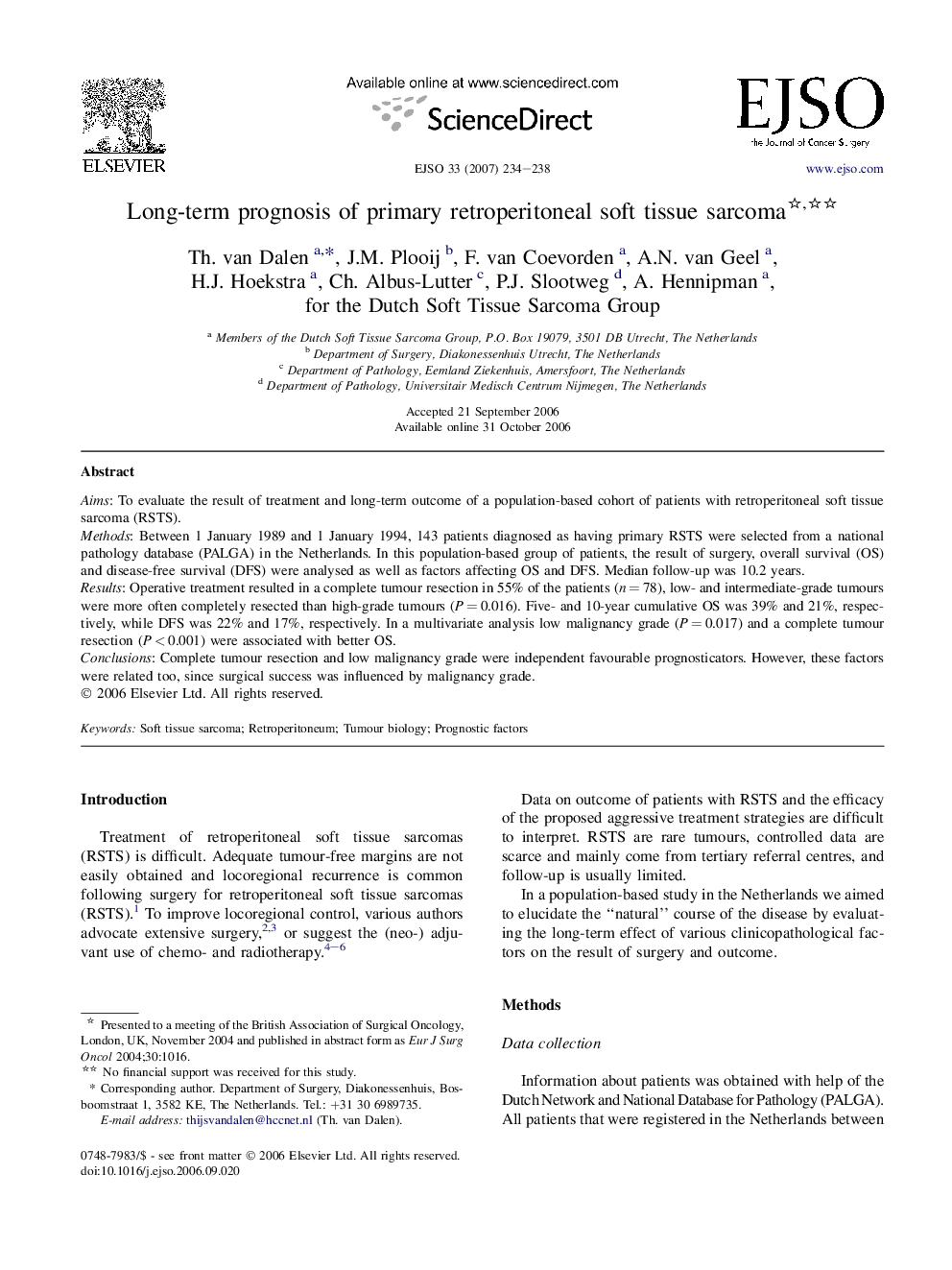| Article ID | Journal | Published Year | Pages | File Type |
|---|---|---|---|---|
| 3987885 | European Journal of Surgical Oncology (EJSO) | 2007 | 5 Pages |
AimsTo evaluate the result of treatment and long-term outcome of a population-based cohort of patients with retroperitoneal soft tissue sarcoma (RSTS).MethodsBetween 1 January 1989 and 1 January 1994, 143 patients diagnosed as having primary RSTS were selected from a national pathology database (PALGA) in the Netherlands. In this population-based group of patients, the result of surgery, overall survival (OS) and disease-free survival (DFS) were analysed as well as factors affecting OS and DFS. Median follow-up was 10.2 years.ResultsOperative treatment resulted in a complete tumour resection in 55% of the patients (n = 78), low- and intermediate-grade tumours were more often completely resected than high-grade tumours (P = 0.016). Five- and 10-year cumulative OS was 39% and 21%, respectively, while DFS was 22% and 17%, respectively. In a multivariate analysis low malignancy grade (P = 0.017) and a complete tumour resection (P < 0.001) were associated with better OS.ConclusionsComplete tumour resection and low malignancy grade were independent favourable prognosticators. However, these factors were related too, since surgical success was influenced by malignancy grade.
